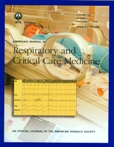
Study Connects Smoking during Pregnancy with Increased SIDS Risk
Premature infants whose mothers smoked during pregnancy may be at even higher risk for sudden infant death syndrome (SIDS) than preemies whose mothers did not smoke, according to new research out of the University of Calgary.
In an experimental study to compare the breathing reflexes of preemies of smokers versus non-smokers, researchers found that babies whose mothers had smoked showed a number of signs of impaired respiratory function.
"Smoking during pregnancy is a double-edged sword with respect to SIDS," said Shabih Hasan, M.D., a staff neonatologist and professor in the department of pediatrics at the University of Calgary, and the principal investigator of the new study. "Not only does it raise a mother's likelihood of having a preterm baby, who is already among the most vulnerable to SIDS, but it increases the infant's susceptibility to SIDS even further."
The research will be published in the first issue for September of the American Thoracic Society’s American Journal of Respiratory and Critical Care Medicine.
Studies have indicated that a combination of hypoxia (low oxygen) and hypercarbia (excess of carbon dioxide) may be acute precursors to SIDS. Infants at the greatest risk for SIDS have been shown to have both attenuated arousal and ventilatory responses to hypoxia and/or hypercarbia.
"Preterm babies are known to have increased breathing difficulties in proportion to their prematurity and cigarette smoke is known to increase apneas in full-term babies," Hasan said. "But until now, cigarette smoke exposure and preterm birth have not been investigated together with respect to their potential effects on respiratory dysfunction."
To analyze the effects of cigarette smoke exposure on preterm infants' respiratory health and their risk of SIDS, the researchers recruited 22 preterm infants who had been spontaneously born between 28 and 32 weeks with no other complicating respiratory factors. Twelve of the infants had mothers who had smoked five or more cigarettes every day in pregnancy. The mothers of the other ten infants did not smoke during pregnancy.
The two groups were similar in some measures--respiratory rates and number of breathing pauses--but there were significant differences between the two groups of preterm babies with respect to heart rate and recovery period. The cigarette-smoke exposed infants showed increased heart rate during the hypoxemic period compared with their baseline values, but there was no difference in heart rates observed in control infants, indicating that the oxygen depletion put their bodies under more stress than the control groups.
Furthermore, while blood oxygen levels decreased similarly in both groups during the hypoxemic challenge, infants who were exposed to cigarette smoke did not recover as well, as quickly or as often as the infants born to non-smoking mothers.
"Our study shows that preterm infants make incomplete and/or delayed recovery from interruptions in breathing," Hasan said. "This has clear implications for their risk of SIDS. But there is even still another reason for concern even after the risk of SIDS has passed. Inability or delayed recovery from repeated low oxygen episodes can also be detrimental to brain development. There is increasing evidence that infants exposed to prenatal cigarette smoke are at high risk for developmental and behavioral disorders."
For more information, visit www.ucalgary.ca.